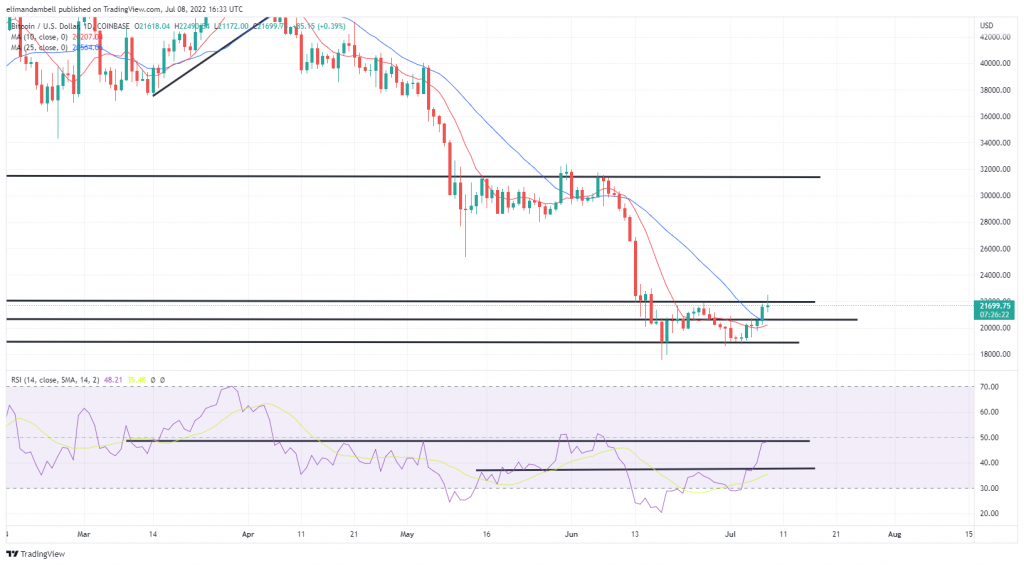During the first week of July, bitcoin prices have risen to their
highest level since mid-June, coming as U.S. Non-Farm Payrolls
handsomely beat expectations. However, as we head into the remaining
weeks of the month, questions still linger on if this momentum can be
maintained, despite the current uncertainty in the market.
Bitcoin’s Current Market Status
Looking back at June, bitcoin (BTC)
started the month trading around the $30,000 mark, however exactly four
weeks ago today, prices fell significantly, with markets still yet to
recover from this drop.
Between June 8th – 18th, BTC/USD went from a peak of $31,600, to a floor of $17,612, coming as inflation in the U.S. continued to rise at historic levels.
This forced the Federal Reserve to
once again hike rates, increasing them by as much as 75 basis points in
hopes of curving spending.
The hike somewhat helped boost market confidence, with traders opting to buy June’s dip, however, for the most part, prices have been trading below $21,000.
However, following five consecutive days of gains, BTC is trading close to the $21,800 level, which is marginally lower than today’s high, which was nearer to a key resistance point.
Although there was an earlier
breakout, prices are now below this hurdle, with volatility once again
higher, leaving many traders uncertain about how the remainder of the
month will pan out.
Stories of severe multi-million-dollar liquidations, alleged insolvencies, and bankruptcies have crypto traders on edge.
The upcoming Fed rate hike and more crypto firms experiencing
negative exposure to insolvent crypto entities continue to add fear to
the market sentiment.
Bitcoin’s July Outlook
This false breakout came at the resistance level of $22,070, which has historically been a point of uncertainty.
As a result of this, bulls opted to secure profits, rather than attempt to push prices of the leading crypto token higher.
Looking at the chart below, this coincides with the relative strength
index (RSI) indicator trading close to a resistance level of its own at
48.30.

Bulls are likely waiting for the momentum indicator to move past this point before reentering with any real show of force.
If they do, they will likely use the
remaining weeks of the month to get closer to the $30,000 region,
recovering some of the losses of the past few weeks.
Many expect the Fed to once again
increase interest rates by another 75 basis points, and should this
happen, plus inflation begins to slow, then investors may see current
lows as an opportune point of entry.
However, with price strength mostly trading under this current
ceiling for the past three months, bears will also be waiting to enter
the fray, targeting a move back below $19,000 this month.











